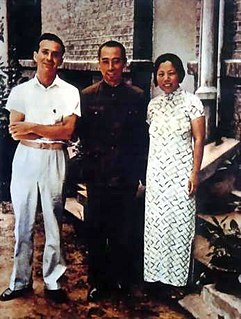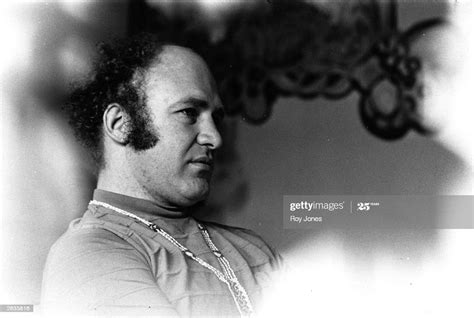A Quote by Edgar Snow
I doubt very much if Mao would ever command great respect from the intellectual élite of China, perhaps not entirely because he has an extraordinary mind, but because he has the personal habits of a peasant.
Related Quotes
While certain coastal cities have become very prosperous, the rest of China has a per capita income of $200 a year. The coast wants to have nothing to do with the interior; it wants to work with Tokyo and New York. This is an old story in China. It is why Mao succeeded in 1927. He wanted [coastal] Shanghai to throw the foreigners out, but Shanghai was doing too well financially [to expel foreigners]. So Mao went to the interior and raised a peasant army. He came back to Shanghai and sealed off the country.
In the short term, it would not have made it possible to resume relations, because in the Chinese mind, the humiliation of China started with the annexation of Taiwan by Japan. If the United States had suddenly declared Taiwan as a separate state - for which we would have had no support among other nations - the consequences would have been giving up our relationship with China and committing ourselves to a long-term conflict with China.
We must make a clear distinction between the nature of Chairman Mao's mistakes and the crimes of Lin Biao and the Gang of Four. For most of his life, Chairman Mao did very good things. Many times he saved the Party and the state from crisis. Without him the Chinese people would, at the very least, have spent much more time groping in the dark.
Very often, or perhaps more often, and even in very good collections - even in some of the best collections ever written, I would argue - it's because our "voicier" writers hew so closely to one given set of dictional tics that we as readers can't read the books all the way through in a single sitting, because if we did, the stories and their narrators would all start to bleed together.































